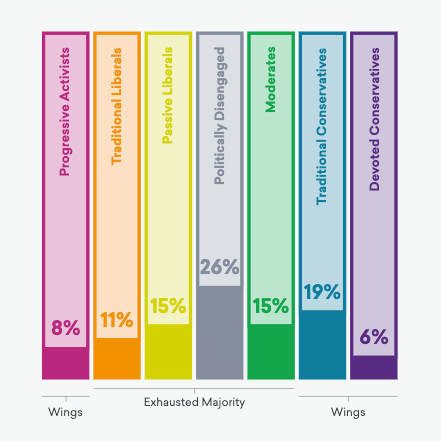
We can’t be creative if we refuse to be confused. Change always starts with confusion; cherished interpretations must dissolve to make way for the new.
| Margaret Wheatley, Willing To Be Disturbed
…
But keep in mind, that despite all the exhortations for business people to be creative, companies continue to erect hurdles to actually being creative. We are not supposed to display confusion, for example. We are supposed to hurry to make decisions, instead of embracing uncertainty. Another wise observation of Wheatley’s from the same essay:
We have the opportunity many times a day, everyday, to be the one who listens to others, curious rather than certain. But the greatest benefit of all is that listening moves us closer. When we listen with less judgment, we always develop better relationships with each other. It’s not differences that divide us. It’s our judgments about each other that do. Curiosity and good listening bring us back together.
Sometimes we hesitate to listen for differences because we don’t want to change. We’re comfortable with our lives, and if we listened to anyone who raised questions, we’d have to get engaged in changing things. If we don’t listen, things can stay as they are and we won’t have to expend any energy. But most of us do see things in our life or in the world that we would like to be different. If that’s true, we have to listen more, not less. And we have to be willing to move into the very uncomfortable place of uncertainty.
So, many of us wind up in a state of dysphoria, yearning to approach the world and its challenges creatively, but blocked by anti-creative, incurious policies and practices in the workplace and in society.
Brat Summer special offer.
Factoids
The rapid fall in news watching.
The vast majority of news websites on all sides of the political spectrum experienced significant declines in year-over-year (YOY) unique visitors. Of the 21 websites monitored by TheRighting, only two – The Epoch Times (+18%) and Newsmax (+3%) – increased their audience in the four-year span.
The Federalist led all news sites in traffic decreases, posting a 93% loss between April 2024 and April 2020. The Washington Times continued its run of huge drops in unique visitors posting an 89% decrease between April 2020 and April 2024. The Washington Times also lost 92% of its March 2024 audience and 89% of its February 2024 audience.
The three mainstream news outlets TheRighting follows regularly also suffered from audience erosion in the four-year period: CNN (-35%), The New York Times (-36%) and The Washington Post (-55%).
People are feeling too dysphoric to want to hear the news, when most news is bad news.
…
Wildfires.
The years since 2018 have been six of the seven worst [for wildfires] since 2003. Over the same time-span the total amount of heat given off by the 20 worst fires of any given year has more than doubled.
Wildfires do more than burn: the CO2 released by wildfires last year was as large as that of a country.
…
Law bots.
One recent survey found that 82% of [lawyers] believe generative AI can be used for legal work but just 51% thought it should.
Uh-oh.
Elsewhere
Hidden Tribes
Reading a Op-Ed piece by David French, Joy Can Do More Than Beat Trump, I encountered a reference to a 2018 research study summary, The Hidden Tribes of America, from More in Common, a global research non-profit organization.
The report [PDF of the full report here] is now 6 years old, but its purpose — using a systematic battery of questions to group Americans into ‘tribes’ — outlasts the original impetus, which was to determine whether the polarization of the country was reflected uniformly across the population, or whether Americans would rather find common cause and reject political and societal polarization. The result?
America has never felt so divided. Bitter debates that were once confined to Congressional hearings and cable TV have now found their way into every part of our lives, from our Facebook feeds to the family dinner table. But most Americans are tired of this "us-versus-them" mindset and are eager to find common ground. This is the message we’ve heard from more than 8,000 Americans in one of our country’s largest-ever studies of polarization: We hold dissimilar views on many issues. However, more than three in four Americans also believe that our differences aren’t so great that we can’t work together.
They found that two of the seven identified hidden tribes —- extremists on the right and left — are the primary wellsprings of polarization, while the ‘exhausted majority’ — ranging from ‘traditional liberals’ to ‘moderates’ — mostly would like to decrease polarization.
They define the ‘exhausted majority’ thusly:
A majority of Americans, whom we’ve called the "Exhausted Majority," are fed up by America’s polarization. They know we have more in common than that which divides us: our belief in freedom, equality, and the pursuit of the American dream. They share a deep sense of gratitude that they are citizens of the United States. They want to move past our differences.
Turning the tide of tribalism is possible―but it won’t be easy. Americans have real differences and real disagreements with each other. We must be able to listen to each other to understand those differences and find common ground. That’s the focus of the Hidden Tribes project: to understand better what is pulling us apart, and find what can bring us back together.
Keep reading with a 7-day free trial
Subscribe to Work Futures to keep reading this post and get 7 days of free access to the full post archives.


